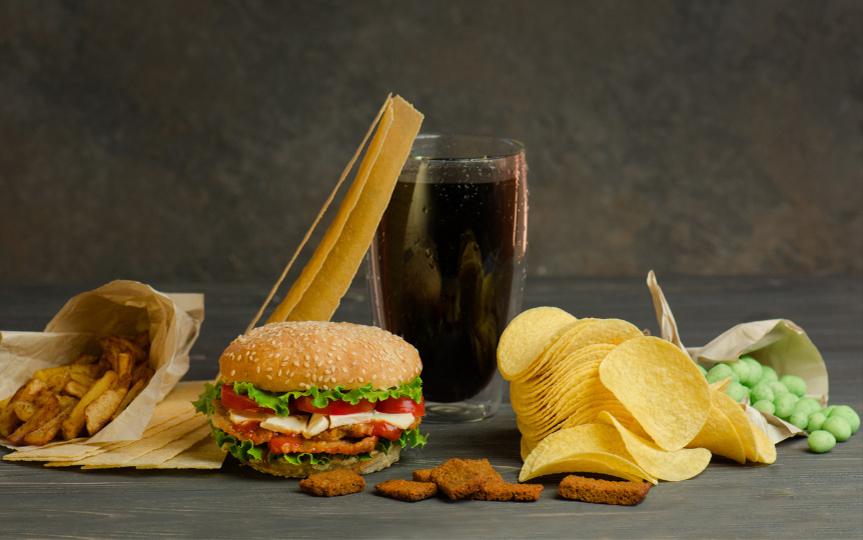🏆 As seen and loved on Shark Tank Dubai 🏆

10 Foods for Runners to Avoid for Better Performance
Athletics is one of the most physically demanding professions one can get into wherein people put their bodies through vigorous activities, sometimes out of the realm of possibility for an average human. They constantly undergo strenuous training and have to always make conscious lifestyle choices to shape themselves up for the job they sign themselves up for.
It goes without saying that a major aspect of their lifestyle choices revolves around what they eat daily. They have to ensure they are making an educated decision regarding what goes on their platter that will not only supply the nutritional element to give a boost to their physical efforts but also supplement the muscles in the long run.
But contrary to popular belief, an athlete's meal plan doesn't have to be bland. Neither does it mean that if you decide to take up athletics, you will have to give up on every possible favourite food item of yours. Sure, there has to be rationing and portioning of the right nutrition and a strict check of your diet, but with proper planning, you can chart out a meal plan that will both be nutritionally potent as well as lip-smacking delicious.
It goes without saying that a major aspect of their lifestyle choices revolves around what they eat daily. They have to ensure they are making an educated decision regarding what goes on their platter that will not only supply the nutritional element to give a boost to their physical efforts but also supplement the muscles in the long run.
10 Foods and Drinks a Runner Must Avoid

As much as it is recommended to give up on all the following food items completely, we understand that it is not practical. So, we recommend minimizing their consumption as much as possible.
Dairy Products
Dairy products, be it milk, cheese, butter, etc. can be difficult to digest which makes them not ideal for runners. It has been noted that many athletes experience stomach aches during the first few days of starting running. This is primarily due to gastrointestinal distress caused by lactose intolerance.
In fact, many runners figure out about their intolerant condition only after they commence their athletic journey. So, instead of dairy, opt for other healthy alternatives such as soymilk or almond milk.
Frozen Meals
Frozen meals are a tempting option due to how convenient they are, both in terms of preparation time and price point. But they are no match for freshly prepared food in terms of nutritional value. With the amount of preservatives that are used to keep them fresh and long-lasting, you can guess how adversely it can affect an athlete's health.
From heart ailments to unhealthy weight gain, increased chances of diabetes to spike in blood pressure, continuously relying on frozen food can be disastrous for an athlete.
Saturated and Trans Fat
Irrespective of whether someone is an athlete or not, they should always make sure the level of LDL cholesterol is always in control since it can be detrimental to heart health. Saturated and trans fats can raise the level of LDL cholesterol, which makes it an absolute no-no for everyone.
Instead, athletes should opt for healthy fats such as seafood, olive oil, avocados, seeds, and nuts that will actively help in raising the level of HDL cholesterol, which is a healthy cholesterol.
Sugared Sodas
First of all, get rid of sodas altogether if you can. But, if you want to include soda, then make sure that at least they are not heavily flavoured or sugared. They give an instant spike to the blood sugar level that falls as rapidly as it rises, which may lead to fatigue and headaches.
This will inadvertently affect the performance of the athletes as it can lead to bloating, diarrhoea, and cramping, thereby affecting their performances.
Energy Drinks
Similar to sugar sodas, energy drinks will give you a momentary boost which will immediately deplete before you realize it, making your heart go through a series of ups and downs. Not only will it harm your performance but it is not healthy in the long run.
Opt for healthy beverages instead that will help cool down your body naturally, provide you with anti-oxidants and nutrients, and can be had in abundance without any risk of health hazards.
Alcohol
Perhaps the most obvious answer on the list but runners must eliminate or at least minimize the consumption of alcohol from their dietary routine. Not only does it leave you dehydrated which, in turn, leads to a decreased performance, but alcohol consumption also leads to a slower reaction time.
In addition, it also results in fatigue, lethargy, and muscle cramps while also hampering the body's natural ability to regulate temperature. Not to mention, the addiction part of it can mentally drain and demotivate an athlete distracting them from their goals.
Fried Foods
We all love our fried foods, be it those mouth-watering French fries or the irresistible fried chicken wings, and everything in between. While it is okay to indulge in some fried foods once in a while on your cheat days, having them continuously regularly can have devastating results for anyone, let alone an athlete.
Fried foods take way too long to get digested because of their calorie density and can seriously affect the performance level of an athlete, while also leading to various artery diseases. They even lead to a wide range of gastrointestinal diseases that can play havoc with someone's life in the long run.
Processed Red Meat
Processed red meat such as bacon, smoked meat, cured meat, hot dogs, sausages, ham, and jerky can lead to an increased chance of colon cancer, possibly from the formation of nitrates during some of its preparation methods.
As such, this is one food item that an athlete needs to watch out for if they want to ensure they have a long-lasting career. Any healthy meal plan that is prepared for an athlete should not include red meat, especially if it's processed.
White Chocolate
Most people, including athletes, are guilty of indulging in chocolates from time to time. But contrary to popular belief, chocolates aren't totally bad for you. It depends on the type of chocolate one is consuming. White chocolates are filled with sugar, fat, and calories and are devoid of cocoa. As such, you won't get the health benefits one can receive from cocoa. The same goes for milk chocolates as well.
Instead, if you have to have chocolate, opt for dark ones since they have a higher proportion of cocoa in them. Dark chocolates help in lowering the level of bad cholesterol, improving blood flow, and decreasing free radicals, while also soothing inflammations.
High-fibre Food
Don't get us wrong. You need fibre for your gut health, for sure. However, if you load yourself up with high-fibre food such as berries, broccoli, whole grain, beans, apples, or lentils just before a run, then you will experience stomach cramps.
Essentially, you don't want them in your gastrointestinal tract while you are in action. Have them after your run or on the days you are taking an off from running.
Conclusion
As you can see, athletes don't necessarily have to give up on their taste buds to enjoy a successful career. But, yes practising moderation with the aforementioned food items will undoubtedly elevate their performance level. The goal should be to keep a close watch on your diet. Having a meal plan will keep you ten steps ahead in ensuring you are providing your body with apt nutrients to perform your optimal best.
Reach out to start your fitness journey with us!
Meal Plans
Delivery Details
Legal Information
© 2020-2026 VMeals. All rights reserved. VMeals™ is a trademark of Flip Side Restaurant and Cafe L.L.C
We accept
